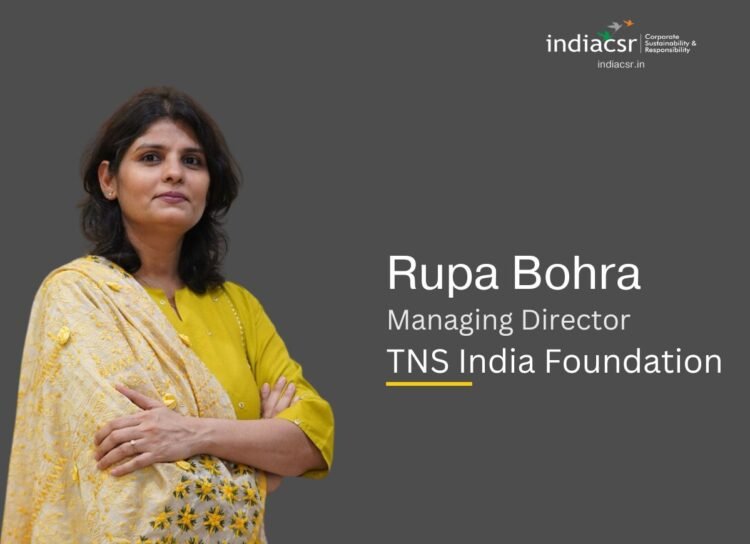
A highly skilled and capable workforce is a cornerstone for economic growth, technological advancement, and social development. In today’s changing world, a country’s strength isn’t just its ample resources or tall buildings but also how skilled its people are. One great example is the United States, a hub of skilled workforce in various sectors.
On the other hand, countries like Chad and Burundi have lower scores in terms of workforce skills, hindering their overall competitiveness and development. These countries encounter many difficulties in attracting foreign investment, fostering innovation, and diversifying their economies due to the lack of a skilled workforce.
As India embarks on the path of becoming a global leader, it is imperative to recognize the pivotal role of a skilled workforce in shaping a brighter future. India’s Prime Minister, Shri Narendra Modi, firmly believes that skills are the currency of the future. Amidst a rapidly evolving global landscape, it’s essential that India’s youth must possess the skills that are in demand across several industries. As we progress in this effort, several important strategies are now being recognized as crucial elements for bolstering the country.
Promoting Industry-Academia Collaboration
One of the keystones in building a robust workforce lies in forging strong bonds between academia and industry. Collaborations between educational institutions and corporations serve as conduits for knowledge transfer, innovation, and skill enhancement. By aligning academic curricula with industry needs, students are equipped with practical skills that directly translate to real-world applications.
In India, such collaborations have gained significant momentum in recent years. A notable example is the “Skill India” initiative launched by the Government of India. This initiative emphasizes industry partnerships to design and implement skill development programs catering to specific industry requirements. According to the Ministry of Skill Development and Entrepreneurship, over 1.6 million candidates were trained under the initiative in 2020-21, indicating the growing convergence between academia and industry.
Skill Development and Training Programs
Empowering individuals with relevant skills is akin to providing them with keys to unlock opportunities. Skill development and training programs are pivotal in transforming the workforce into a dynamic and adaptable entity. Recent data from the National Skill Development Corporation (NSDC) highlights the positive impact of skill development programs in India. In 2020-21 alone, NSDC trained more than 5 million individuals across various sectors, ranging from healthcare and construction to hospitality and information technology. This surge in training is a testament to the growing awareness of the importance of skill development in building a competitive workforce.
In the realm of skill development, some leading non-profit organizations invest in transformative training programs. Programs like Campus to Corporate Careers (C2C) uplift under-resourced undergraduate urban youth, equipping them with 21st-century skills, digital skills, financial literacy, and aptitude to improve their employability levels that help place them in the formal sector. The program does this by directly training the students on their college campuses, thereby providing them with an in-depth high-touch experience of learning and development. The Future Skills Program (FSP) on the other hand, collaborates with college faculty and supports them to train students using an online learning platform, thereby providing students with a tech-enabled learning experience supplemented with on-ground counseling and placement support. Such programs ensure that disadvantaged youth have equal access and opportunity and can participate in the formal economy.
Focus on Digital Literacy
In an era where digitalization is reshaping industries and societies, digital literacy emerges as a paramount skill. The ability to navigate digital platforms, utilize online resources, and adapt to digital tools is no longer a luxury but a necessity. Digital literacy opens doors to online learning, remote work, e-commerce, and access to information that can uplift communities.
Recent data from the Ministry of Electronics and Information Technology reveals significant strides in digital literacy in India. The Digital India program, launched in 2015, has already trained over 10 million individuals across rural and urban areas. These efforts are not only enhancing individual capabilities but also ensuring that India is well-equipped to harness the opportunities presented by the digital age.
Attracting and Retaining Talent
While equipping the existing workforce with skills is paramount, attracting and retaining talent is equally vital. Creating an environment that attracts skilled professionals and encourages them to stay is instrumental in building a sustainable and competitive workforce. Factors such as job satisfaction, work-life balance, and professional growth opportunities play pivotal roles in this endeavor.
Nurturing Human Capital: India’s Path to Global Influence
The path to a prosperous and thriving nation is intricately linked to the strength of its workforce. As India aspires to reach new heights, it must prioritize strategies that bolster its human capital. A highly skilled workforce stands as the catalyst that can elevate a country towards its ambition of becoming a powerhouse. As nations chart their paths to prominence, the value of skilled individuals remains unparalleled. Every skilled worker becomes a stepping stone, propelling the country closer to its ultimate goal of asserting its strength and influence on the world stage.
About the Author
Rupa Bohra, Managing Director, TNS India Foundation.




















